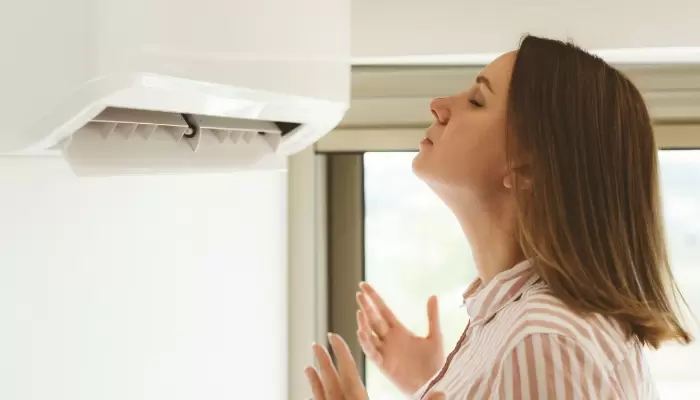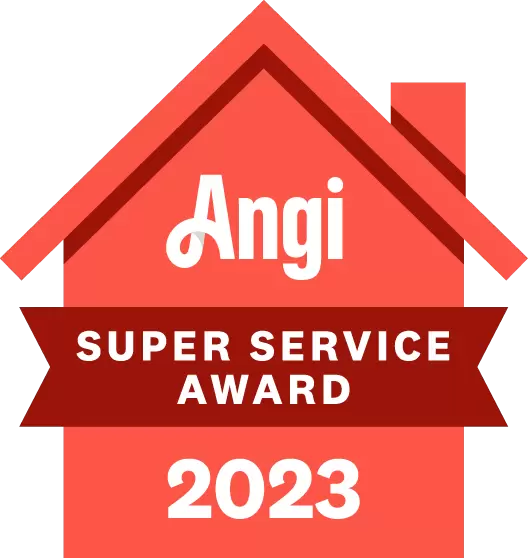
Troubleshooting an Air Conditioner That Runs But Doesn’t Cool Your Home
When your AC kicks in on a hot summer day in Birmingham, you expect cool relief. When half an hour goes by and your home is still warm, you know something is wrong. It can be confusing and frustrating when your AC is running but not cooling. We’re here to help!
This guide blends expertise with practical tips and DIY solutions to common AC woes. Whether you’re facing minor hiccups or puzzling inefficiencies, our aim is to help you save time, money, and sweat.
Don’t forget—while we love a good DIY success story, Perfect Service is here to lend a professional hand 24 hours a day at 205-206-6091 !
Common Causes of Inefficient Cooling
Inefficient cooling is a common AC problem for many homeowners. There isn’t one single cause for the issue. It could be something as simple as a clogged filter or an indicator of a more serious internal problem.
What can cause your AC to run but not cool your home properly?
- The filter may be dirty. Air filters should be cleaned out regularly to remove dirt and debris and replaced at least every 90 days. A dirty air filter can lead to restricted airflow and strain on the blower. The AC will struggle to maintain temperatures and cause hot and cold spots across your home.
- There may be a refrigerant leak. If your AC has low refrigerant levels and/or a leak, you might notice a hissing sound, increased humidity inside or frozen evaporator coils. A leak will cause your AC to run longer cycles and drive up utility costs without cooling your home efficiently.
- The thermostat may be faulty. If your thermostat needs new batteries or recalibration, it may interfere with your AC. Miscommunications can lead to incorrect temperatures, frequent cycling and higher utility costs.
- The equipment may be aging. With proper maintenance, an air conditioner can last 15-20 years. After years of wear and tear, your unit will lose efficiency and won’t cool your home the way it used to. Inefficient cooling in older systems is usually a sign that it has reached the end of its lifespan.
No matter the cause, your AC running but not cooling is a sign that the unit is working harder than it should.
AC Troubleshooting Tips
Before calling a professional, there are several DIY steps to rule out any obvious causes of inefficient cooling.
Clean and replace the air filter regularly.
- A clogged air filter restricts airflow through the AC system, causing it to work harder and less efficiently. Dust and debris can also get into the system and impact performance.
- Regularly replacing the air filter ensures optimal airflow and efficiency, potentially lowering energy costs and preventing system wear.
- Locate the air filter in your AC system, which is typically found in the return air duct or near the air handler. Slide out the old filter and insert a new one, making sure it’s oriented correctly according to the airflow direction on the filter.
Inspect and clean the condenser unit.
- The condenser unit expels heat from the AC system. Dirt and debris can insulate the unit and reduce its cooling efficiency.
- Keeping the condenser clean ensures it can effectively expel heat, improving the system’s cooling efficiency.
- Locate the condenser unit outside your home. Remove any debris, leaves, or dirt around it. Carefully clean the fins with a soft brush or a garden hose, avoiding high-pressure water that can bend the fins.
Look for signs of refrigerant leaks.
- Check for any visible signs of leaks around the AC unit, such as oil stains or hissing noises. Note that detecting refrigerant leaks often requires a professional.
- Refrigerant is essential for cooling your home. A leak can lead to insufficient cooling and higher energy consumption.
- Identifying and repairing refrigerant leaks ensures your system has the correct refrigerant level, which is crucial for efficient cooling.
Test the thermostat settings.
- An improperly set or malfunctioning thermostat can cause the AC to run inefficiently or not cool at all.
- Verifying and adjusting thermostat settings ensures the AC system activates and runs as expected.
- Ensure your thermostat is set to cooling mode and set the temperature lower than the current room temperature. Consider replacing the batteries if it’s battery-operated or checking for loose connections if it’s hardwired.
When to Call a Professional for an AC Running But Not Cooling
After you’ve given the DIY steps a try, there may still be times when the expertise of a professional is needed. Knowing when to make this call is crucial for the health of your AC system and the comfort of your home.
Here are some situations where reaching out to a professional is the next best step:
- If your AC is still struggling to cool your home after troubleshooting.
- If you notice any strange smells or noises from your AC, like grinding, hissing or banging.
- If there are signs of an electrical problem like tripped circuit breakers, an unresponsive thermostat or flickering lights when the AC turns on.
- If you suspect a refrigerant leak and/or notice ice formation on the refrigerant lines.
Why is it important to call a licensed HVAC contractor?
Calling a professional HVAC contractor is not just about fixing immediate problems; it’s about ensuring the longevity and efficiency of your AC system. Professionals bring a level of expertise and diagnostic equipment that goes beyond the scope of DIY maintenance.
They can diagnose hidden issues, perform electrical repairs safely and provide expert advice. While there are many maintenance tasks and simple troubleshooting steps homeowners can perform, there comes a time when calling a professional is not only the safer choice.
The Importance of Regular AC Maintenance
Regular preventative maintenance is crucial to keep your AC running efficiently. This service usually includes cleaning coils, checking refrigerant levels and tightening electrical connections. It’s the ideal time to identify potential issues before they escalate and perform small, cost-friendly repairs.
Through regular cleaning and filter changes, AC maintenance can improve your home’s indoor air quality. Dust and debris can quickly build up in and around the cooling system and filters. Keeping the components clean helps reduce indoor air pollutants that irritate asthma and allergies.
Investing in regular AC maintenance can help you save money in the long run. The more efficiently your cooling system runs, the less energy it consumes so you can enjoy lower utility costs. Small adjustments during AC maintenance can extend the lifespan of your system to avoid early replacements.
Scheduling an annual tune-up can help prevent unexpected air conditioning breakdowns. Scheduling maintenance in the early spring prepares your AC for the brutal summer heat and prevents system failures. Technicians can spot wear and tear during routine checks and replace parts that are likely to fail soon.
Don’t Sweat Your AC’s Efficiency – Call Our Team Today!
Navigating through the maze of your AC running but not cooling can be daunting, but with the right information and a bit of elbow grease, many common problems are within your power to solve. If DIY doesn’t do the trick, though, don’t hesitate to reach out to our HVAC experts. Our team is on standby 24/7 to help diagnose and fix the problem.
For preventative AC maintenance and last-minute repairs, Perfect Service has you covered. Contact us online today or call 205-206-6091 to keep your AC efficient and your home comfortable.




